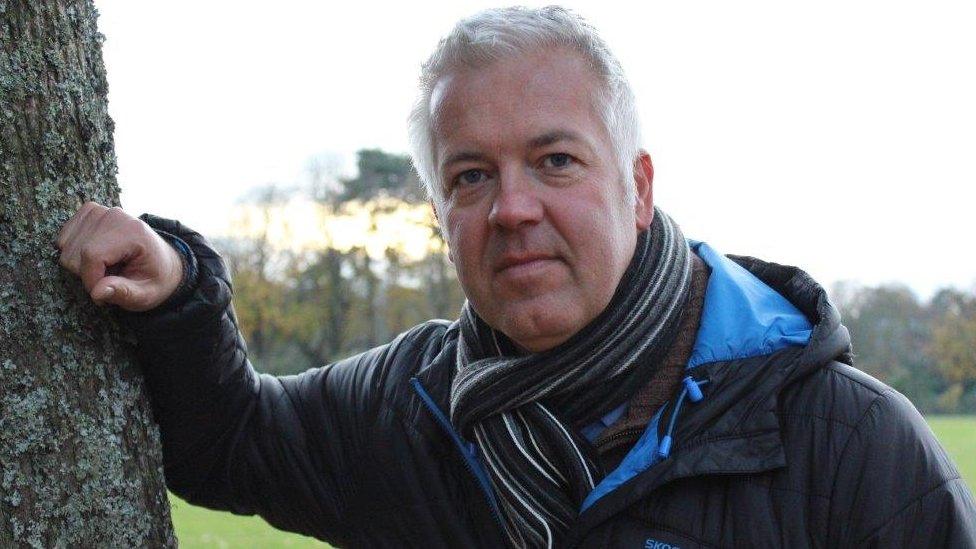Sepsis: Teen footballer wants better care for young adults
- Published
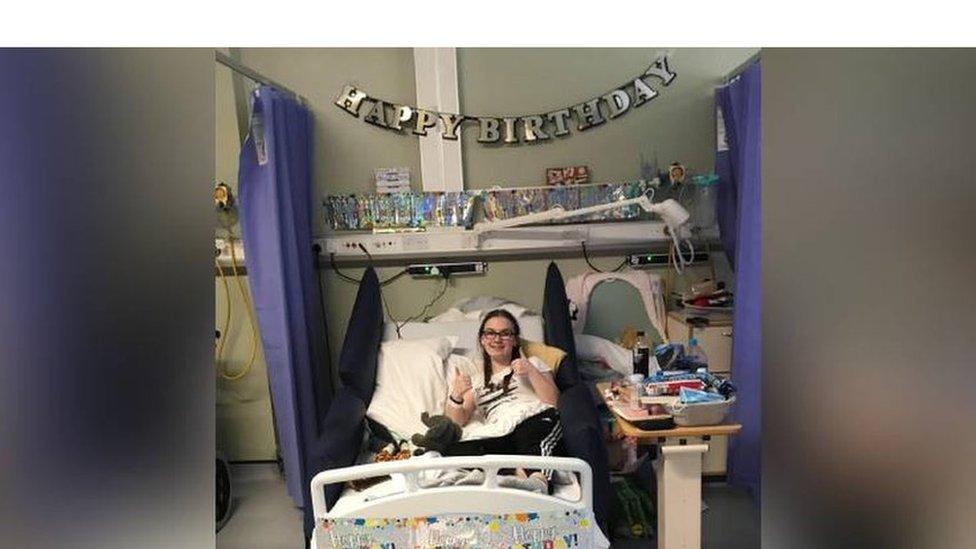
Hollie spent months in hospital and nearly died after a kidney infection led to sepsis and a cardiac arrest
A teenager who dreamed of a place in Wales' national football team says there needs to be better care for young adults, after sepsis left her disabled.
Hollie Smith, 19, from Cardiff, was set for a trial to get into the women's team when she was struck down by a kidney infection last year.
It developed into sepsis, her heart stopped, and the young striker was left needing round-the-clock care.
Hollie said more care facilities for young people were urgently needed.
"When I woke up from my cardiac arrest, I had lost the use of my right side - I could no longer stand, sit up, eat, dress, look after or wash and toilet myself," said Hollie.
"Considering I was about to trial for the Welsh national football ladies' team before going into hospital this was all a bit of a shock."
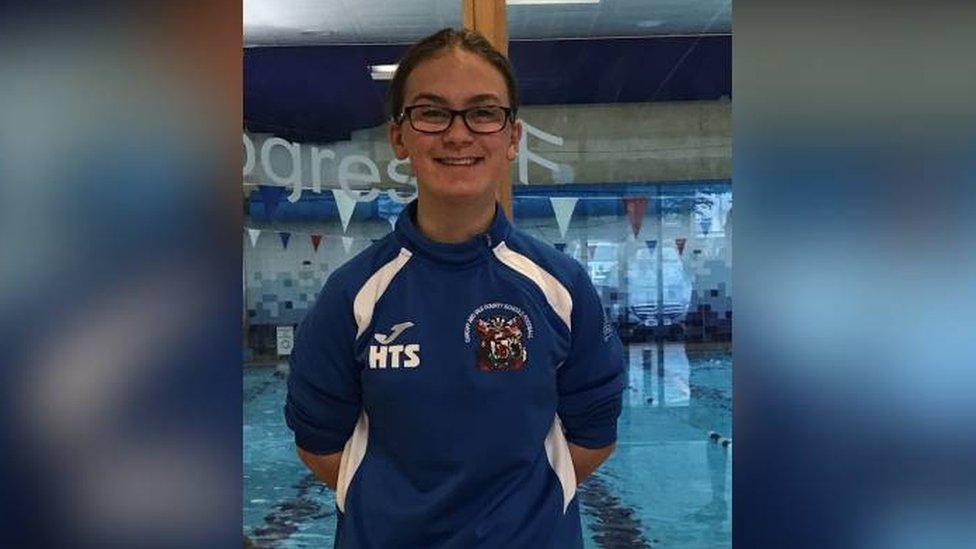
Promising young footballer Hollie was about to have a trial for the Wales football team when she became ill
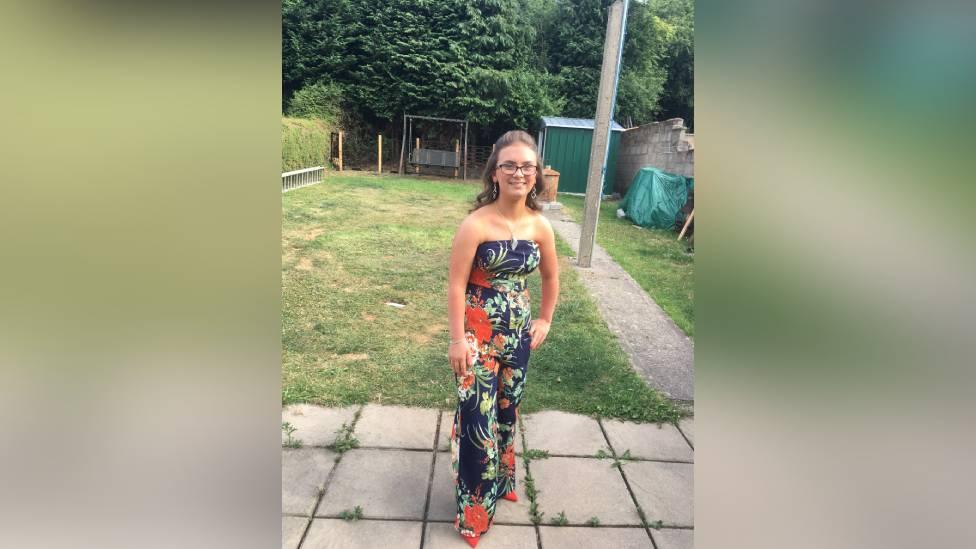
Hollie was a healthy 18-year-old before sepsis struck
Amid struggles with her mental health as she tried to adapt to such a brutal change, Hollie underwent months of intensive physiotherapy, which restored some of the movement she had lost.
On returning home from hospital in December, she faced a new routine of two carers, four times a day, helping her with even the most basic of tasks.
After six weeks, disaster struck and she developed sepsis a second time - which affected her kidneys, lungs and brain.
Hollie was put in an induced coma for more than two weeks and was told she was "very lucky" to survive.
But life has since consisted of a hospital bed in the living room, with bumpers to protect her from injury when having seizures, a full ceiling hoist, a team of carers, and a daily cocktail of medications.
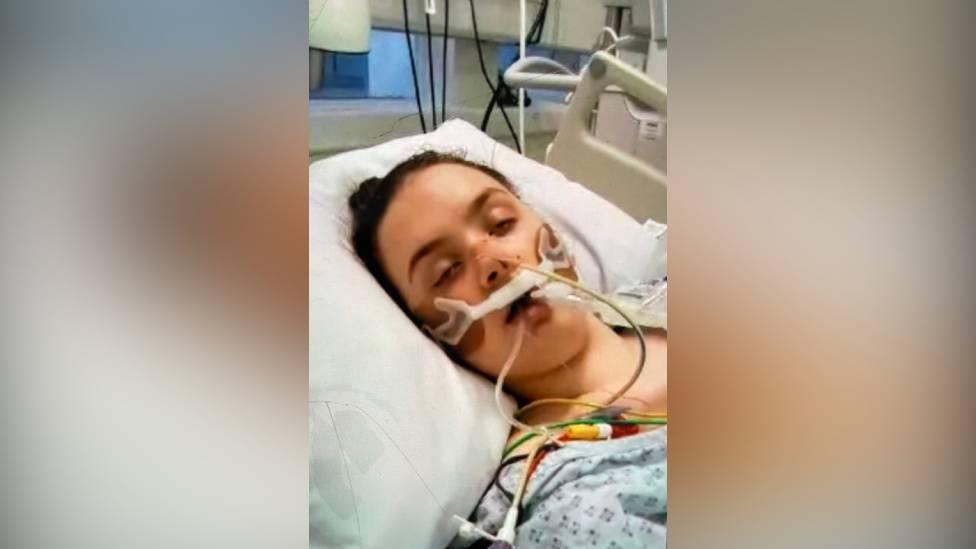
Just weeks after returning home, Hollie developed sepsis for a second time and was put in an induced coma
"I can't do the most basic of tasks, whereas I'm watching other people my age going to university and driving, and what a normal teenager or young adult should be doing," she said.
"It's been pretty horrendous to be honest - I think only now is it all starting to sink in.
"I do try to be positive but at the moment it's quite hard, because with Covid, everything that needs to be done is considerably slower because of the pandemic."
A sportswoman's spirit
Incredibly - and with a fierce determination common in many sportspeople - the former footballer has been planning for the future and how she could use her experiences to help others.
"My personal goals are to go to college and resit my A-levels in order to give me a stepping stone to go on to university and study medicine.
"I also hope to start campaigning for better young disabled adults' facilities.
"Now, the long-term outlook for recovery is poor. However, I do hope in the future that I will be able to sit up with minimal assistance and be able to propel myself in a wheelchair and find a new sport to get into."
Her family said they hoped to adapt their home to give Hollie as much independence as possible and have also been trying to raise funds for private physiotherapy and a personal-use defibrillator.
Hollie added she hoped to have enough for a holiday with carers provided "so that my parents get a break too".
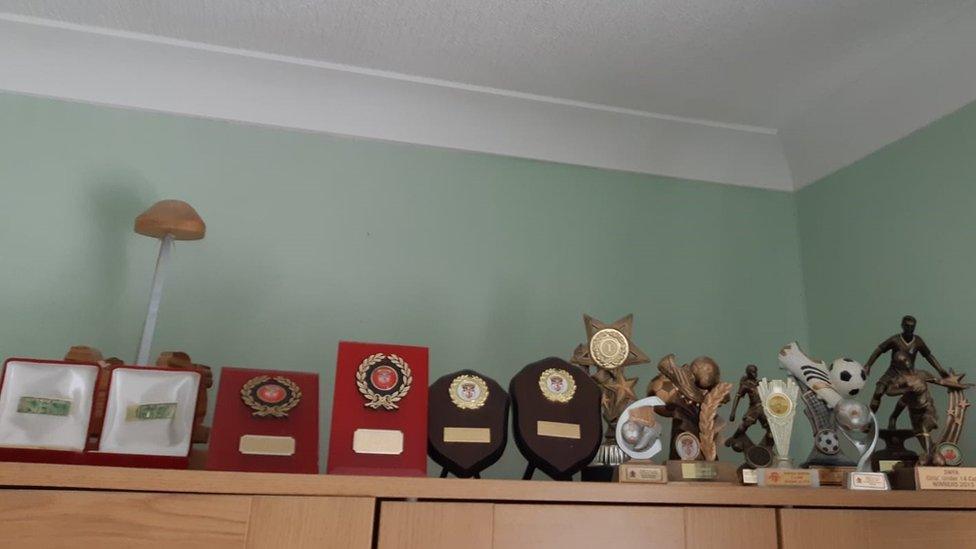
Hollie's trophies: She's set herself fresh life challenges - including passing her A-levels exams, and wanting to study medicine
In the meantime, Hollie has highlighted that although her care has been excellent, there should be better facilities when young people experience sepsis or are learning to adapt to disability.
"I've been told that I meet the threshold for residential care. However, the only places I could go would be a care for the elderly facility, or a place for people with learning difficulties, and neither would really be able to meet my needs," she said.
"Also in hospital there is a children's hospital but no transition for young adults - I was on a ward with dementia patients and people sometimes four times my age.
"I just want young adults to be able to have more suitable surroundings and activities to do in hospital. Also, even after being in hospital, a lot of social services and facilities care is geared towards the elderly and I just feel that needs to change."
But she was keen to stress that the hospital team at University Hospital of Wales "were and still are amazing with me and my family and I owe my life to them".
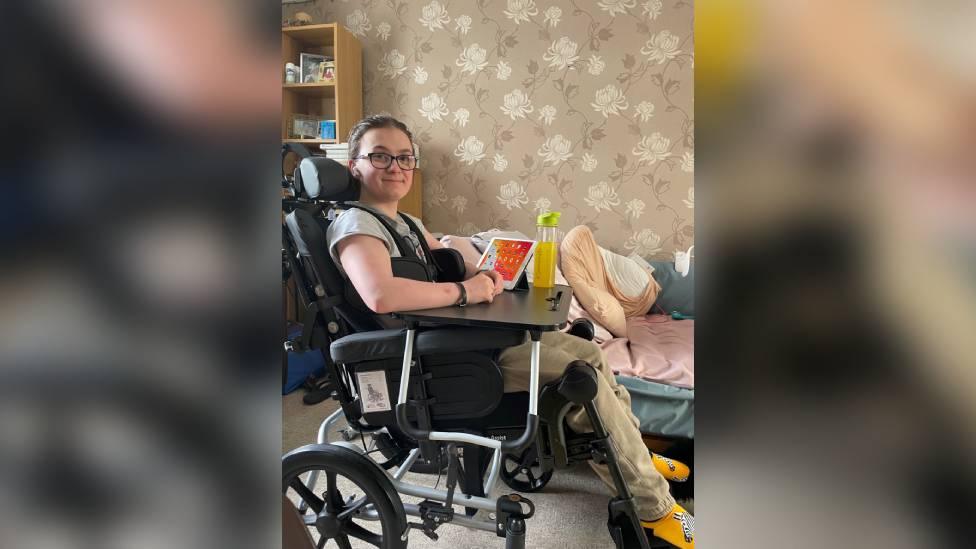
Hollie returned from hospital to a very different life, but is focusing on the future and campaigning for better facilities for other young people
Cardiff council said it was "committed to working with individuals to find the best way of meeting their needs to ensure the best outcomes can be achieved".
"Although every effort is made to offer different types of facilities and care services so that younger people can live independently whilst accessing the support they need, we do recognise that, due to the city's demographics, many services have a focus on older people.
"That said, care services are regularly reviewed, and in order to identify how we can best deliver high-quality services to younger people with disabilities in Cardiff, a partnership project is due to begin shortly which will help us make improvements which best meet the needs of everyone requiring care in Cardiff.
"Importantly, we will work with Cardiff and Vale University Health Board where care is shared between health and the council."
The health board said its patient experience team had contacted Hollie to share her experience "including what aspects could have been better".
"When patients are admitted to hospital they are triaged and are placed on a ward with access to the most appropriate clinical expertise for their needs so they get the right care and treatment at the right time," said a Cardiff and Vale health board official.
A Welsh government said decision on appropriate care "should be considered for patients on an individual basis in consultation with the clinician responsible for their care".
It added: "We expect health boards to ensure there is no loss in the quality of any service provided, there is on-going engagement and good patient experience in the handover and transition of care from paediatric to adult services."

SOCIAL MEDIA & SPORT: Vicki Blight investigates the impact of social media in sport
HELL ON WHEELS: Spend some time with Wales’ first roller derby team, the Tiger Bay Brawlers

- Published9 May 2021
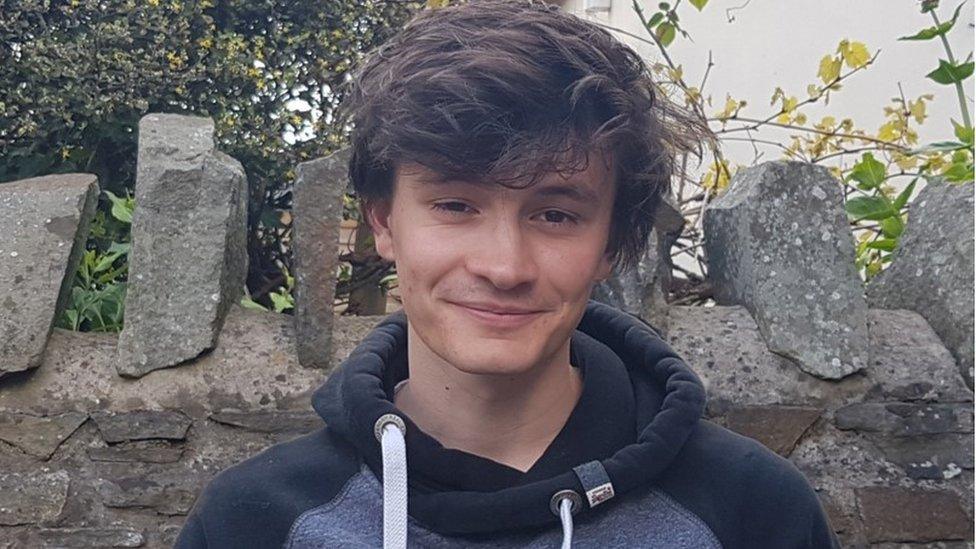
- Published8 September 2018
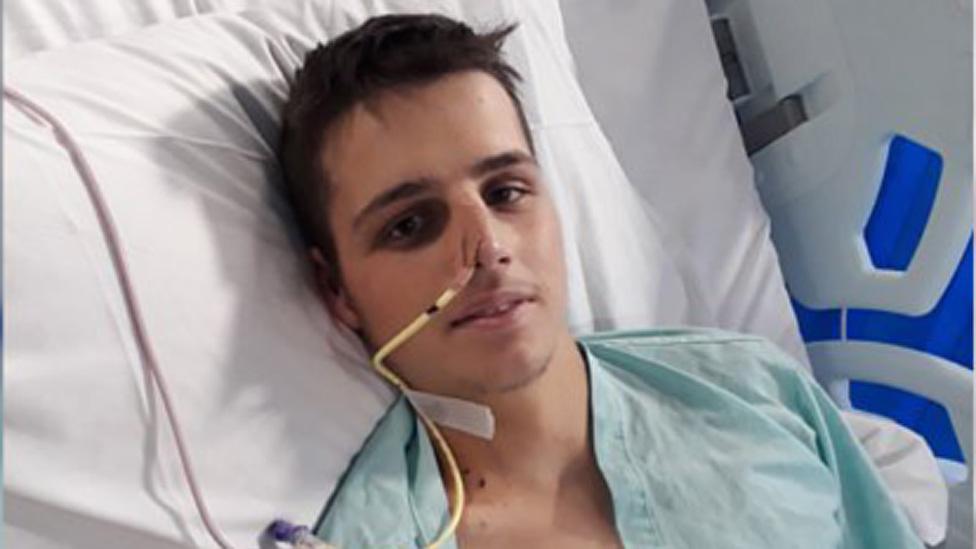
- Published9 February 2020
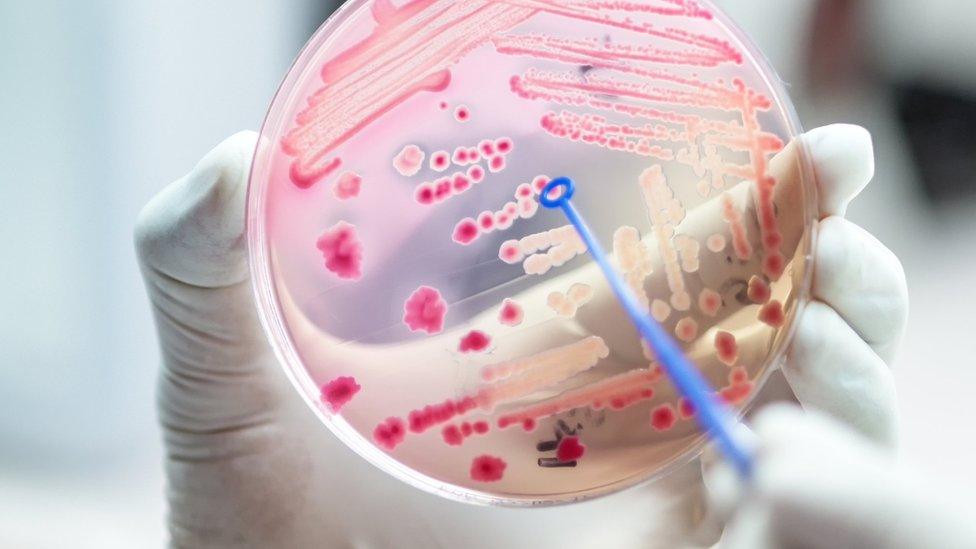
- Published15 December 2020
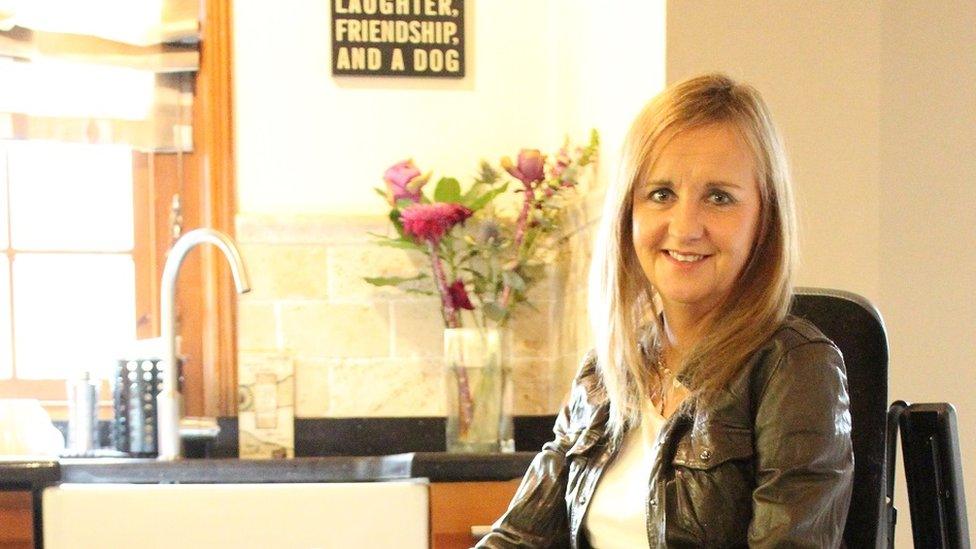
- Published13 September 2019
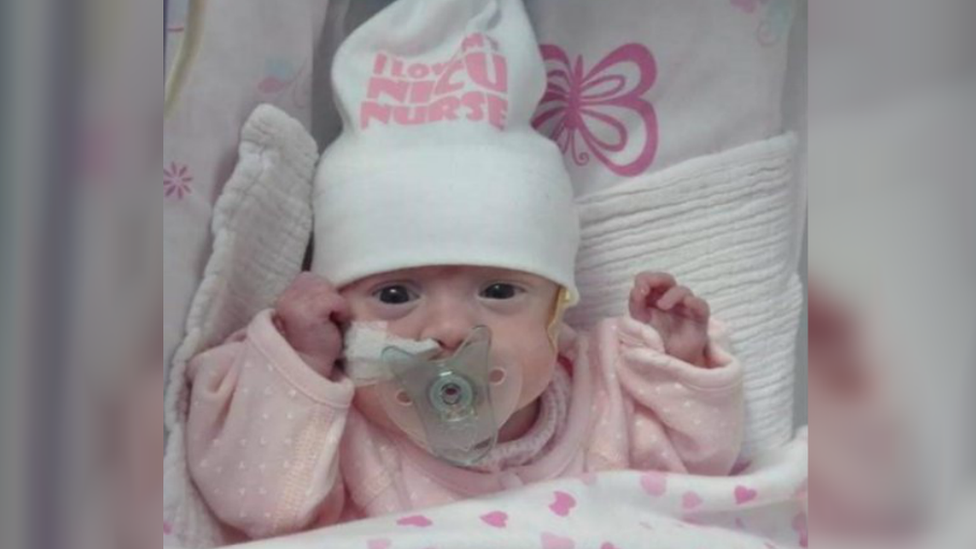
- Published11 January 2019
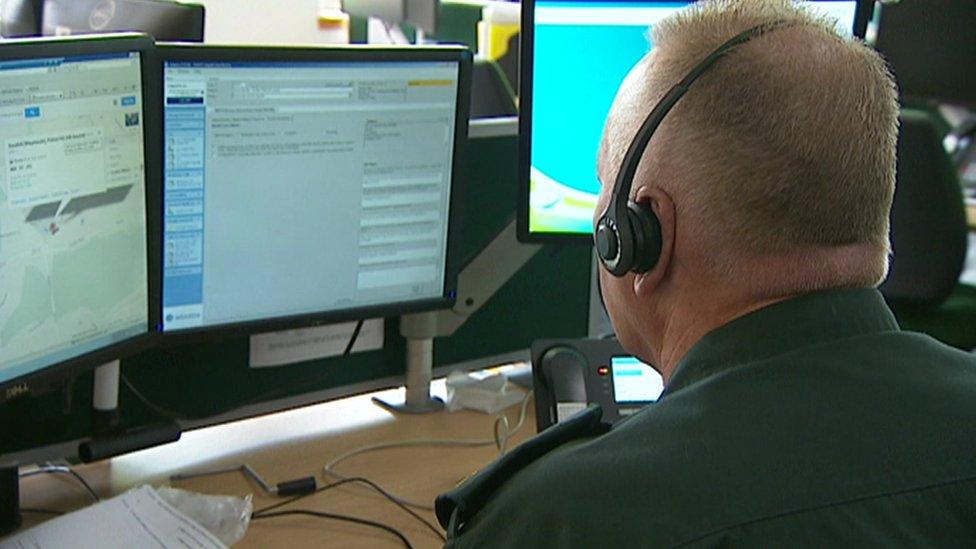
- Published12 February 2020
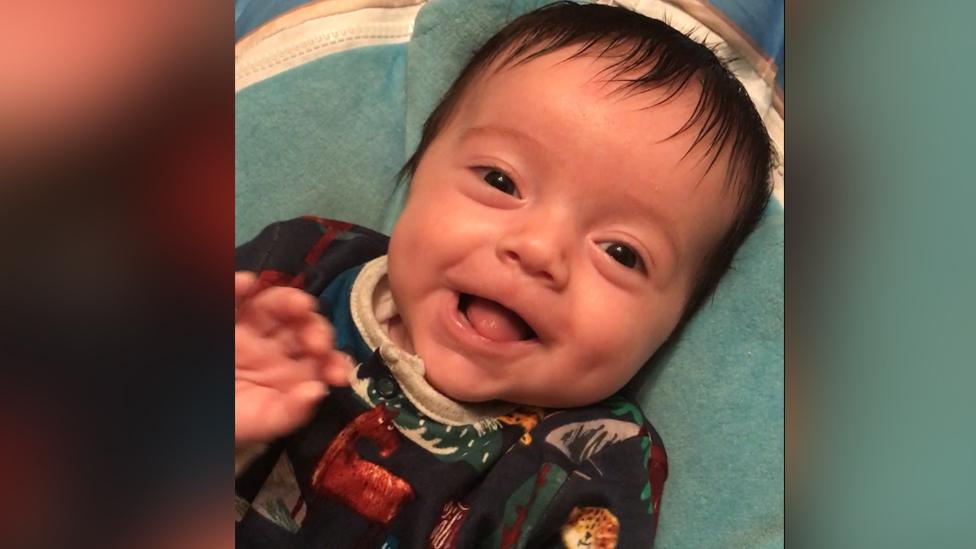
- Published28 November 2016
